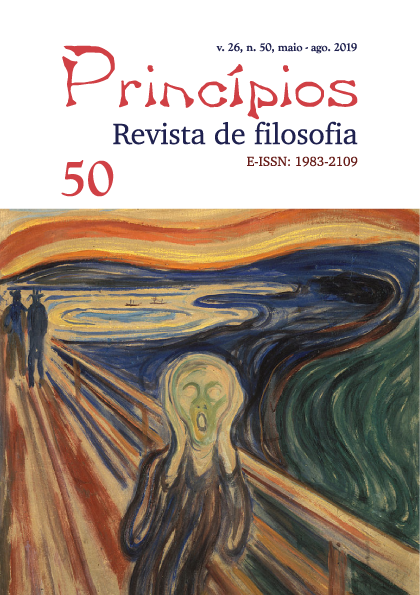O ceticismo antifideísta de Hume
DOI:
https://doi.org/10.21680/1983-2109.2019v26n50ID16905Keywords:
Skepticism, Fideism, Misticism, Empiricism, HumeAbstract
Hume's skepticism may seem close to skeptical fideism in view of his critique of human faculties involved in the knowledge of truth and his defense of the need for a non-rational mechanism as foundation of our beliefs. The difference between them would lie in the identification of the solution to the suspension of judgment resulting from the discovery of the insufficiency of reason to understand the world and to guide action: one would point to natural determination, another to Revelation. I argue here that this closeness is no more than apparent. Hume's philosophy is constituted as antifideist not only for prudential, practical or pragmatic reasons, but also for its philosophical foundations. To show it, I examine the discussion between Demea and Philo in the Dialogues Concerning Natural Religion, the investigation into the origin of religion in the Natural History of Religion and the reasons for the recommendation of philosophy to superstition in the Treatise of Human Nature.
Downloads
Downloads
Published
How to Cite
Issue
Section
License
Authors retain copyright and grant the journal right of first publication with the work simultaneously licensed under a Creative Commons Attribution License that allows others to share the work with an acknowledgement of the work's authorship and initial publication in this journal.


 Português (Brasil)
Português (Brasil) English
English Español (España)
Español (España) Français (Canada)
Français (Canada)


